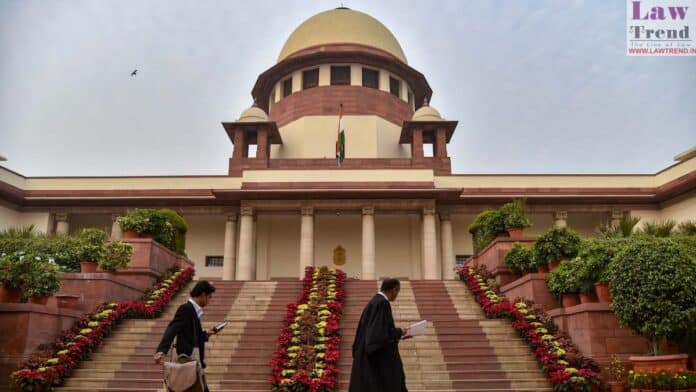The Supreme Court on Wednesday expressed displeasure over failure to update or amend the Punjab Civil Services Rules, 1934 with correct official description of posts to obviate confusion.
A vacation bench of Justices Vikram Nath and Ahsanuddin Amanullah said the rules have not kept pace with the times, and incongruity has crept in due to passage of time.
The Rules, originally framed in 1934, contemplated the authorities as ‘The Inspector-General, a Deputy Inspector-General, and a Superintendent of Police’.
“The ‘Inspector-General’ of that time (when the service was called Imperial/Indian Police) headed the State Police, but is today known as, in most States and Union Territories, barring a handful, in the hierarchy of the State Police, as the Director-General of Police, an officer drawn from the Indian Police Service, who sits at the apex of the state police machinery.
“In fact, today the Inspector-General of Police is administratively subordinate to the Director-General of Police and the Additional Director-General of Police. The Rules were also framed at a time when the system of Ranges and Commissionerates had not been established. Indubitably, the Rules, for better or for worse (worse, we hazard) have not kept pace with the times. We do not appreciate why the authorities concerned are unable to update/amend the Rules with at least the correct official description of posts to obviate confusion,” the bench said.
Also Read
The observation came while dismissing an appeal filed by a man against an order of the Punjab and Haryana high court which restored the order of the Director General of Police, Haryana directing reconstruction of the Annual Confidential Report against him on account of corruption, insubordination and dereliction of duty.
The top court said the DGP had rightly show-caused the appellant and taken subsequent action thereupon.
“Considering the chain of events, the consequential action, in our considered view, cannot be said to be arbitrary or shocking the conscience of the Court, so as to warrant interference.
“For a person in uniformed service, like the police, adverse entry relating to his/her integrity and conduct is to be adjudged by the superior authority who record and approve such entry. Personnel having such remarks being compulsorily retired as per the statutory provisions under the Punjab Civil Services Rules, 1934, in the instant facts, is not an action this court would like to interdict,” the bench said.




